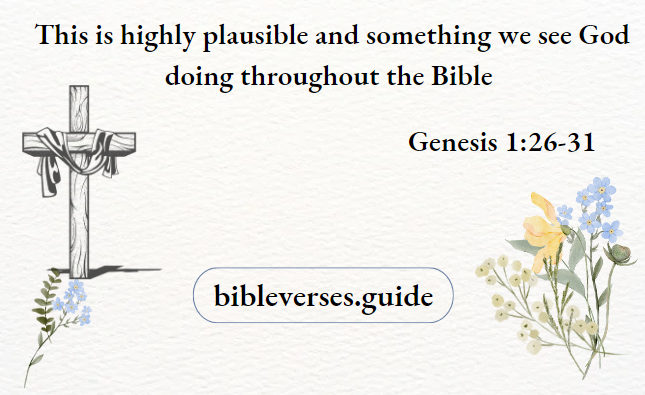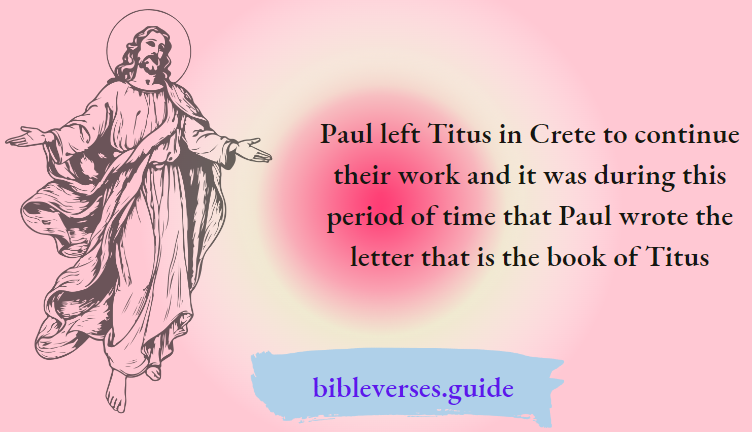The Bible
The Bible is a book inspired by God, with many stories, prophecies, and messages. Although the Bible is thousands of years old, it is still the most popular book sold each year. Many people are convinced the Bible is outdated or has not progressed with the changing times; however, the Bible has proven over and over again that it has stood the test of time.
Every day millions of people look to the scriptures for hope, assurance, promises, and a guide for how to live their lives. The Bible has never come up empty, and it has been a driving force for many, to keep them grounded and focused.
The Bible is a kind of blueprint on how life should be lived, but, as seen in the scriptures, everyone fails, and we are all notorious for falling short of God’s desire and plan. But of course, God knew that we would.
The Bible is divided into two parts, the Old Testament, and the New Testament and each are very distinctive. The Old Testament gives an account of the beginning of time, God’s creation, and how much he loved mankind.
However, the Old Testament also reveals God’s anger as a result of sin and our separation from God. God did not want to be separated from his people, he wanted to bridge the gap, and that is why he sent us a Savior. Although the Savior was prophesized throughout the Old Testament, it wasn’t until the New Testament that he was born.
The Old Testament is the Law, and the New Testament is the New Covenant, Jesus Christ. Throughout the Old Testament, we see the continual struggles that the Israelites and the Gentiles had with obeying God and his commands.
The people wander off and do their own thing, they disobey God, and they worship idols. The struggle to obey God’s Law is a continual theme throughout the Old Testament. The Law was given by God, knowing that it could not be maintained by the people.
Sin and disobeying God separated us from our Creator, and, God wanted that gap bridged. In the New Testament, we see God’s perfect plan unfold, and hope is restored. Christ comes, the Savior of the earth, who will save the people from their sins. As prophesized, he is born in Bethlehem, is crucified on the cross, and is resurrected so that salvation has been restored.
The Bible is a manual of how Christians should live their lives, but it is also a tool to help us recognize that we cannot do this on our own strength – we need help, hope, and a Savior, and that Savior is Jesus Christ.
As you read through this book, you will see how each Book of the Bible is unique, but also how they all connect together. From the creation to the imminent end times, the story unfolds through historical books, poetic books, prophetic books, and letters to the churches.
The Bible is filled with many exciting and scandalous stories, examples of failure and success, falling and rising again, and hope and glory.
Through the Bible, we clearly see that God is pursuing all of us, both Jews and Gentiles. He loves us unconditionally and has paved the way to be with us; however, the choice is up to us.
In the end, we will all stand before God and give an account for our lives. However, on that day, many of us will enter the gates of heaven, while others will not. The Bible is a roadmap to everlasting life with Jesus Christ.
The Bible is comprised of 66 books: 39 in the Old Testament, and 27 in the New Testament. The books are categorized as follows.
Difference between Old Testament and New Testament explained
Bible Basics
The Bible was written over a period of nearly 1,500 years by 40 people. The earliest books were written by Moses over a period of about 40 years, spanning from (approx.) 1450 BC to 1410 BC.
BC means before the birth of Christ (Jesus). The last book of the Bible, which is Revelation, was written around 100 AD.
AD means after the death and resurrection of Christ.
This is interesting in the fact that not one single word in the Bible contradicts another. In other words, the prophecies and historical accounts in the earliest books of the Bible are spoken of and fulfilled hundreds of years later in the later books of the Bible in detail.
Another piece of proof that points to the Bible’s relevancy is the fact that it doesn’t try to stand alone; meaning it isn’t ‘afraid’ to be scrutinized or examined. For example, in 1st Kings 14:19, we read: The other events of Jeroboam’s reign, his wars, and how he ruled, are written in the book of the annals of the kings of Israel.
This is just one of many examples of what I’m talking about.
The Bible is as true as it gets. It is our guidebook for life. It is the proof of how and why we exist. It is a book of promises that cannot and will not be broken. In short and in the words of Moses in Deuteronomy 32:47, the words of the Bible are not idle words – they are your life.
Bible Basics 101
Before we actually get into what the Bible has to say let’s get familiar with some of the basics of the Bible.
The Bible consists of 66 books and is divided into two main sections:
- Old Testament
- New Testament
The word ’testament’ means contract. And what is a contract? It is an agreement between two or more people. This is fitting due to the fact that the Bible contains God’s promises to us in return for our faith and obedience to him. God agrees to bless, comfort, protect, provide for us, and save us from an eternity in hell in return for our following him faithfully.
But why bother? When you buy a house you enter into the contract because you want to make a particular place your home. When you accept employment, you agree to give your best effort to your job because you want to use your skills and earn a paycheck.
From the employer’s perspective, he or she enters into the contract because they want someone they can depend on to represent their place of business in an accurate and positive manner.
So what about the Bible? What is the underlying cause or reason God instituted this contract between us and him? Love. Unconditional, unmerited love.
Yes, it really is that simple. God created us out of love, so it is only natural that he would take whatever measures or actions were necessary to protect that love. Think about it—as a parent aren’t you committed to doing and saying whatever is necessary for your children to know you love them?
The Old Testament consists of 39 books and contains the history of the world up to the period in which the Persian Empire was the most powerful in the world. It was during this time that Malachi wrote the last book of the Old Testament.
The books of the Bible are not presented in chronological order of when they were written, but rather they are given to us in a historically chronological order. For example, most theologians believe Job was written before some of the books that come before it in the Bible. But how could that be? How could Job be before Adam, Noah, and Abraham?
I’m so glad you asked and I’ll be happy to answer your questions…
1: He wasn’t before Adam. No one other than God came before Adam. Just because Job may have been written before God directed Moses to write the book of Genesis and those that come immediately after it doesn’t mean Job’s story took place prior to the events in the first books of the Bible. It’s like telling a story and then going back with a “Meanwhile, back at the ranch….”

Summary and meaning of the Bible book by boo
For example, we read that man and woman were created on the sixth day, that God blessed them, gave them specific jobs, and told them what they were to do and what they were to eat.
Then God looked at them and proclaimed this final piece of his ‘creation puzzle’ very good (in comparison to ‘just’ good after he created everything else).
Beginning in verse of Genesis we read a more detailed account of that day’s events. It even comes after we read that God rested on the seventh day.
The fact that this more detailed account comes after we know God rested on the seventh day and after the initial and somewhat abridged version of the event doesn’t automatically mean it was a separate event. It just means God chose to go back and give us more details before going on with the rest of the story.
2: We know Job was post-Noah because he, well, because he was. The Bible leaves no room for doubt that Noah and his family (8 people in all) were the ONLY people to survive the flood that covered the entire earth.
And since Job was not one of Noah’s sons, then we know Job had to come after Noah. In fact, we know it had to be at least three generations after Noah because Job is not listed as one of Noah’s grandsons.
Noah’s son, Shem, however, is listed as the father of Uz; meaning his sons, grandsons, etc. are where the people group in this country or tribe came from. And since we know Job was from the land of Uz (Job 1), it only makes sense to assume that Job was a descendent of Shem.
3: As for being before or after Abram (later Abraham), it is quite possible or even probable that he lived either prior to Abram/Abraham, or a generation or two after Abraham lived. The reasons for placing a job in either one of these periods of time include:
- Uz, where Job was from) is mentioned only in listing the descendants of Shem, in introducing Job to us, in the book of Lamentations where it is referencing Shem’s descendants again, and finally in the book of Jeremiah where a historical reference is made to all the kings of Uz. The area or land of Uz had ceased to exist (at least by that name) by the time Moses and the Israelites came onto the scene.
- Job is said to be a very Godly and faithful man. In fact, God tells Satan that there is no other man like him. So had he lived during the time of Abraham, it would have been reasonable for God to have chosen Job as the father of the Israelites. As for coming after Abraham, it doesn’t make much sense to think that God felt Job was like none other—specifically Jacob. That leaves us with putting Job’s lifetime prior to Abraham’s. This timeline is most feasible because it would ‘allow’ God to give Job the honor of being the most faithful of men, but a man who simply didn’t fit into God’s timeline for bringing about the nation of Israel.
- There are several other evidences throughout the Book of Job that place him in this period of time. These evidences include:
- The names of his so-called friends and comforters are known rulers and dignitaries of prominent people groups during this period of time.
- The raiders who come to ravage Job’s farm and livestock come from areas near the assumed location of Uz.
Other books of the Old Testament including Esther, Psalm, Proverbs, and Ecclesiastes were written during different periods of history in the nation of Israel. But rather than inserting them between the chronological history of Israel and later Israel and Judah, they are simply given to us after we read the historical documentation God provides us with.
The same can be said for the books of the prophets. Take Jeremiah, for example. God first called Jeremiah to be a prophet during the reign of King Josiah in Judah. Daniel began prophesying shortly after Israel was taken captive by the Babylonians under the rule of Nebuchadnezzar and continued into the reign of King Darius.
But again, rather than insert these books into the middle of the historical timeline accounts of the kingdoms, God simply led those putting the manuscripts together to put them as a group.
It isn’t all that difficult to see the method of organization.
- Genesis, Exodus, Leviticus, Numbers, and Deuteronomy are the books of the Mosaic Law (and history)
- Joshua, Judges, Ruth, 1st and 2nd Samuel, 1st and 2nd Kings, 1st and 2nd Chronicles, Ezra, Nehemiah, and Esther are books of history
- Job, Psalms, Proverbs, Ecclesiastes, and Song of Solomon are the books of wisdom and poetry
- Isaiah, Jeremiah, Lamentations, Ezekiel, and Daniel are the major prophets
- Hosea, Joel, Amos, Obadiah, Jonah, Micah, Nahum, Habakkuk, Zephaniah, Haggai, Zechariah, and Malachi are the minor prophets
The book of Malachi was written a little more than 400 years before the birth of Jesus. And then nothing. There is a period of silence lasting 400 years from Malachi to the New Testament book of Matthew.
This period of silence is one in which God does not talk to his people or communicate with them in any way. We do, however, know what was happening in the world because of other historical documents, archeology, and research.
It was during this 400 year period that the following major world events took place:
Note: This list is not in any order of significance or chronology.
- Alexander the Great defeated the Persian Empire
- Aristotle was born and made significant impacts on the world of science, literature, and education in general
- The city of London was founded
- Numerous dynasty wars and conflicts took place in China and other parts of Asia
- The Greek Empire enjoyed decades of prominence and power before falling to the Romans
- The first Roman road system was built
- Julius Caesar was murdered
- The temple was reconstructed in Jerusalem
- Socrates lived and died; making indelible marks on mankind during his lifetime
- Paper was invented
It was after this 400-year period that God sent his son, Jesus, to be born to earthly parents This begins the New Testament.
Like the Old Testament, the New Testament contains the history and accounts of Jesus’ life on earth; including his ministry, his miracles, his death, burial, and resurrection, and his return to heaven.
This is followed by a history of the early church, books of doctrine (the why and how to be one with Christ), which are essentially letters written by Paul and a few others to the early Christians.
The book of Acts and some of Paul’s letters also contain accounts of Paul’s missionary journeys. The New Testament ends with the book of Revelation, which is a book of prophecy and imagery of the second coming of Christ—the final judgment of mankind.
Bible history timeline explained in simple terms
The New Testament Is Divided As Follows:
- Matthew, Mark, Luke, and John are the Gospels
Acts is the book of the history of the Church and most of Paul’s missionary journeys.
- Romans, 1st and 2nd Corinthians, Galatians, Ephesians, Philippians, Colossians, 1st and 2nd Thessalonians, 1st and 2nd Timothy, Titus, Philemon, Hebrews, James, 1st and 2nd Peter, 1st, 2nd, and 3rd John, and Jude are letters (epistles) that outline the doctrine of the Church and God’s requirements, expectations, and forbiddances to Christians
- Revelation, as stated, is the book of prophecy of things still to come
At this point, it is worth mentioning that there are Bibles available that have been arranged in chronological order. NOTHING is changed in the wording of the scriptures. They have only been rearranged and grouped together to be in harmony with what is going on when, where, and with who.
For example, the four books of the Gospel (Matthew, Mark, Luke, and John) don’t all contain the very same accounts of Jesus’ ministry or his parables, but many of them are repeated in two, three, or all four.
In cases like this, all four accounts are given together (one following another) rather than each book in its entirety. Another example of how it is put together can be seen in the books of Kings and Chronicles. The account of each king in both books is shown side by side.
For many, a chronological Bible makes understanding the history of the world much easier. They like to see all of the events happening at one time neatly gathered in one place. Whether you read it chronologically or otherwise, however, the fact remains that the Bible is the inspired word of God and that its truth will remain until his return.








